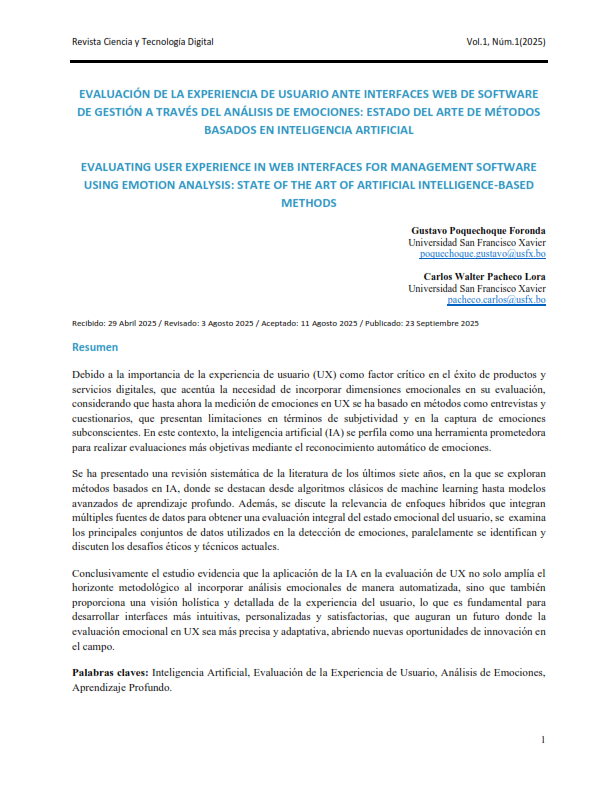EVALUATING USER EXPERIENCE IN WEB INTERFACES FOR MANAGEMENT SOFTWARE USING EMOTION ANALYSIS: STATE OF THE ART OF ARTIFICIAL INTELLIGENCE-BASED METHODS
Keywords:
Artificial Intelligence, User Experience Evaluation, Emotion Analysis, Deep LearningAbstract
Given the importance of user experience (UX) as a critical factor in the success of digital products and services, which underscores the need to incorporate emotional dimensions into its evaluation, and considering that until now, the measurement of emotions in UX has relied on methods such as interviews and questionnaires, which present limitations in terms of subjectivity and in capturing subconscious emotions, artificial intelligence (AI) emerges as a promising tool for conducting more objective assessments through automatic emotion recognition.
This paper presents a systematic review of the literature from the last seven years, exploring AIbased methods, ranging from classic machine learning algorithms to advanced deep learning models. Furthermore, it discusses the relevance of
hybrid approaches that integrate multiple data sources to obtain a comprehensive assessment of the user's emotional state, examines the main datasets used in emotion detection, and identifies and discusses current ethical and technical
challenges.
In conclusion, the study demonstrates that the application of AI in UX evaluation not only expands the methodological horizon by
incorporating automated emotional analysis, but also provides a holistic and detailed view of the user experience, which is essential for developing more intuitive, personalized, and satisfying interfaces. This suggests a future where emotional
evaluation in UX is more precise and adaptive, opening new opportunities for innovation in the field.





